Land any job you've got your eyes on with your brand new executive resume. At first, the process of resume writing may seem like a challenge — on that we can agree. But if you break it down into smaller steps, you'll see that it really doesn't have to be complicated.
And for that reason, we've put together the following guide, brimming with the best resume tips, professional templates, detailed examples, and samples submitted by real people! Follow these steps one by one, and you can have your resume ready in no time.
Keep on reading and find out how to:
- Optimize communication by including key elements in your contact information section
- Create an impressive professional summary for your executive resume
- Select the best skills for your executive resume
- Write a winning work experience section for your executive resume
- Make your executive resume shine with an impeccable education section
- Choose relevant additional sections for your executive resume
- Access top resources for job-seeking executives
1. Optimize communication by including key elements in your contact information section
Make it simple. Avoid oversharing and never include sensitive data.
Your header should contain your name, phone number, email and professional social media links, such as LinkedIn or Twitter.
Make sure to update your social media account information, and tailor it to the executive position you are applying for.
2. Create an impressive professional summary for your executive resume
Many candidates mention a variety of general job duties, making their professional summaries unnecessarily long. Do not be those candidates.
Your professional profile should be relevant, brief, and filled with important keywords from the job posting.
Market yourself, making it a smooth combination of your best work experience, measurable accomplishments and exceptional executive skills.
Executive professional summary example
Enthusiastic senior-level sales executive with 13+ years of experience in real estate. Highly effective at exceeding sales quotas, increased total sales by 17% within 8 months through networking and social media. Skillfully monitored the property market to identify clients’ needs, securing 87 brokering deals within a year.
3. Select the best skills for your executive resume
When it comes to applying for an executive role, the bar is undoubtedly set high, and so there is nothing left for you but to exceed the hiring manager’s expectations.
What if your potential employer required a focused person who makes prompt decisions in relatively difficult situations? Well, your skill-set would probably include agility, effective decision-making, and ability to work well under pressure.
Prepare the best possible competencies for your executive resume, tailoring your soft and hard skill-sets to the job posting.
The following lists will help you compile your executive skills sections in no time.
The most effective soft skills for your executive resume
- Senior Leadership
- Outstanding Communication
- Critical Thinking
- Change Management Skills
- Problem Solving
- Confidence
- Effective Decision Making
- Agility
- Integrity
- Ability to Work Well Under Pressure
- Interpersonal Skills
- Delegation
The best executive hard skills for your CV
- IT Skills
- Legal Knowledge
- Relationship Building
- Methodology
- Budgeting & Finance
- Strategic Planning
- Presentation Skills
- Negotiation
- Scheduling
- New Business Development
4. Write a winning work experience section for your executive resume
Pull out all the stops to make your prospective employer feel like your past work experience is a vision of their company’s future success.
The following tips will help you compile an enthralling work experience section:
- Make your career trajectory clear by listing your work history in a reverse chronological order, starting with the most recent role.
- Use the bullet points, avoiding large chunks of text.
- Be transparent about whom you worked for.
- Use keywords from the job posting, tailoring your executive work experience section to the job you are applying for.
- Quantify your accomplishments. Statistically, the best resumes are those with measurable achievements.
- Avoid mentioning dry job details that might repel the recruiter from reading the rest of your CV.
Executive work experience section example
Stenson Real Estate, Texas
Sales Executive
2017–2020
- Oversaw 30+ real estate agents and spearheaded the promotion of property sales.
- Increased total sales by 17% within 8 months through improved networking and social media plan.
- Skillfully monitored the property market to identify Stenson clients’ needs, securing 87 brokering deals within a year.
- Set up a partnership with Moxtra Real Estate Management System that saved the company $2 million in licensing fees over a two-year period.
5. Make your executive resume shine with an impeccable education section
Just like your work experience section, your education information should be transparent. If you have not completed a degree, let the recruiter know about your status.
Whether you have finished your studies or not, you can make your education section stand out by mentioning your areas of interest, relevant coursework or accomplishments.
Listing education in your executive resume
University of Europe
Master of Business Administration
2010–2013
- Area of interest: Innovation and Entrepreneurship
- Excelled in Performance Measurement
- Relevant Coursework: Leadership, Strategic Management, Legal Environment of Business, Business Management, Financial Analysis, Innovation & Management, Corporate Finance
6. Choose relevant additional sections for your executive resume
Depending on the job you are applying for, your choice of extra sections can certainly make a difference.
You may opt for relevant certifications, interests that reveal your leadership competencies, or projects that prove your strategic skills.
Last but not least, your volunteering activities in a nonprofit organization may convey your social awareness, and ability to establish relationships with people from an array of different backgrounds.
The following list may help you pick the most suited extra sections for your executive resume:
- Language Skills
- Conferences
- Volunteering Activities
- Certifications
- Awards and Recognition
- Projects
- Qualifications
- Interests
- Other Accomplishments
Listing extra sections in your executive CV
Certifications
- Project Management Certification (PMP), Rome 2019
Volunteering Activities
- Volunteer, Home and Heart Shelters, Austin, January 2019 – March 2020
- Prepared and delivered meals to over 150 people in need per day.
- Planned and organized monthly charity events, where over $5,000 were raised.
-
Community Engagement Volunteer, ABC Nonprofit Organization
- Organized and led fundraising events, resulting in a 20% increase in donations for the organization.
- Mentored a group of high school students, providing guidance and support in their personal and academic growth.
- Coordinated volunteer initiatives, recruiting and training a team of 15 volunteers for various community outreach programs.
Still looking for a job? These 100+ resources will tell you everything you need to get hired fast.
7. Top resources for job-seeking executives
See? It really wasn't that bad right? But now it's time to move to the real challenge — embarking on your job search. We've put together a list of resources that might be helpful for anyone looking for an executive position.
- Industry-specific job boards: Search through websites that aggregate job postings pertaining to executive positions like ExecThread, Executivesontheweb, or ExecAppointments.
- Online job search websites: Next, take advantage of job search engines with broad focus such as Indeed, Glassdoor, ZipRecruiter, LinkedIn, or SimplyHired.
- Recruitment agencies: Agencies like Executives Online and Experteer specialize in identifying and placing top executives in leadership roles, offering tailored executive search services and expertise.
- Professional associations: Organizations like The Executive Leadership Council (ELC), The Institute of Directors (IoD), or The European Confederation of Directors Associations (ecoDa) are excellent sources of networking opportunities, further training, as well as job listings.
- Specialized publications: Keeping updated on the newest trends, news, strategies, or research can give you the competitive edge you need. Consider following media like “Strategy+Business,” “Forbes,” or “Business Insider.”
- Courses & certificates: To stay on top of your executive game, constant learning is a must. Online learning platforms such as Coursera, edX, LinkedIn Learning, or Udemy, offer a wide selection of interesting courses and certifications.
The process of job hunting is more akin to a marathon than a sprint. Beware of exhausting yoursefĺf too early. Regularly check websites for new job postings, attend networking events, and don't forget to always update your investor resume.
Executive Manager Resume FAQ
What are some of the most common errors to sidestep in an executive resume?
Firstly, keep the length of your resume to a single page (two pages are also acceptable in certain cases). Other glaring errors include: grammar mistakes, spelling errors, and typos. Mistakes like these reflect poorly on your attention to detail and professionalism, so always proofread what you write.
What's the best strategy for making my executive resume relevant and targeted?
The key lies in customizing your resume to align with the needs of the company you're applying to. To do that, start by carefully analyzing the job description, the profile of the company and its culture. Then proceed to customize your resume, laser-focusing on the required skills and experiences. Anything that shows that you're the right person for the job.
Should I include references in my executive resume?
No, unless it's explicitly required by the job posting. Instead, have your references ready on a separate document, so that you can produce it when asked to. You can also add a little note to your cover letter stating: “References available upon request.”
How often should I update my executive resume?
That's up to you, really. You can refresh your resume whenever you gain a new skill or experience regardless of whether you're currently looking for a job or not. It's a good habit to get into, and it can save you some stress in case you'll have to suddenly look for a new job.
Is it recommended to use action verbs in my executive resume?
Not only is it recommended, but it's also the best thing you can do to make your work experience description more impactful! Starting your bullets with action verbs captures attention and portrays you as proactive. So, start each bullet point with a word like "spearheaded," "orchestrated," or "pioneered," to make your achievements more dynamic and memorable.

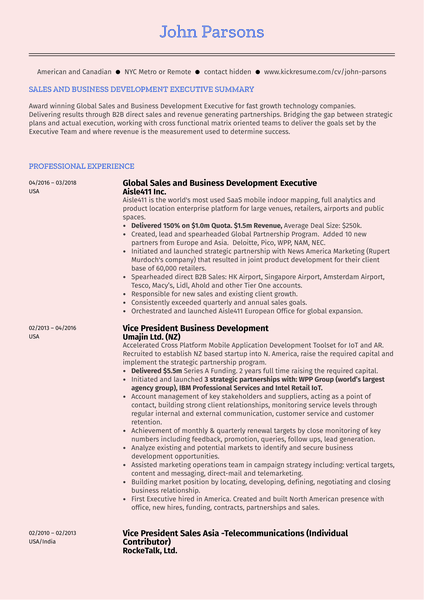

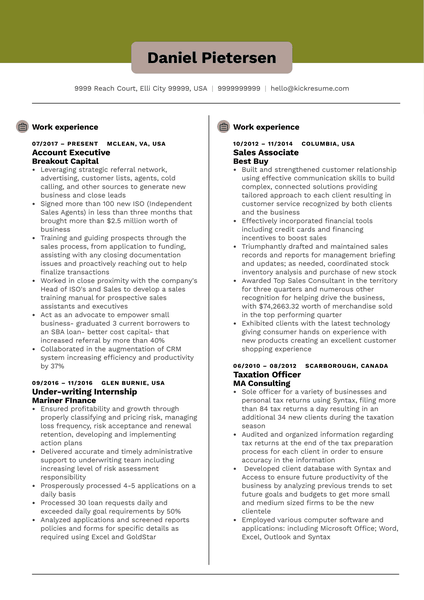

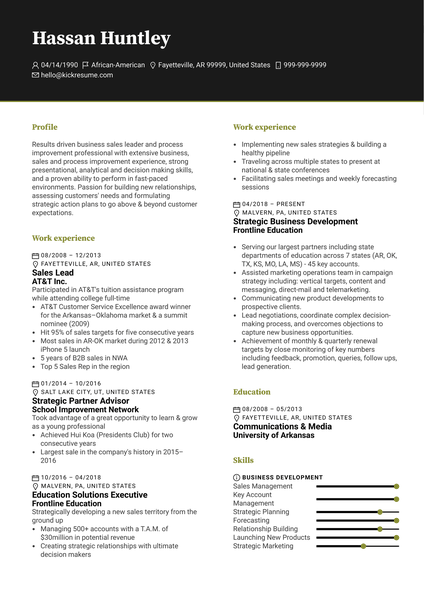

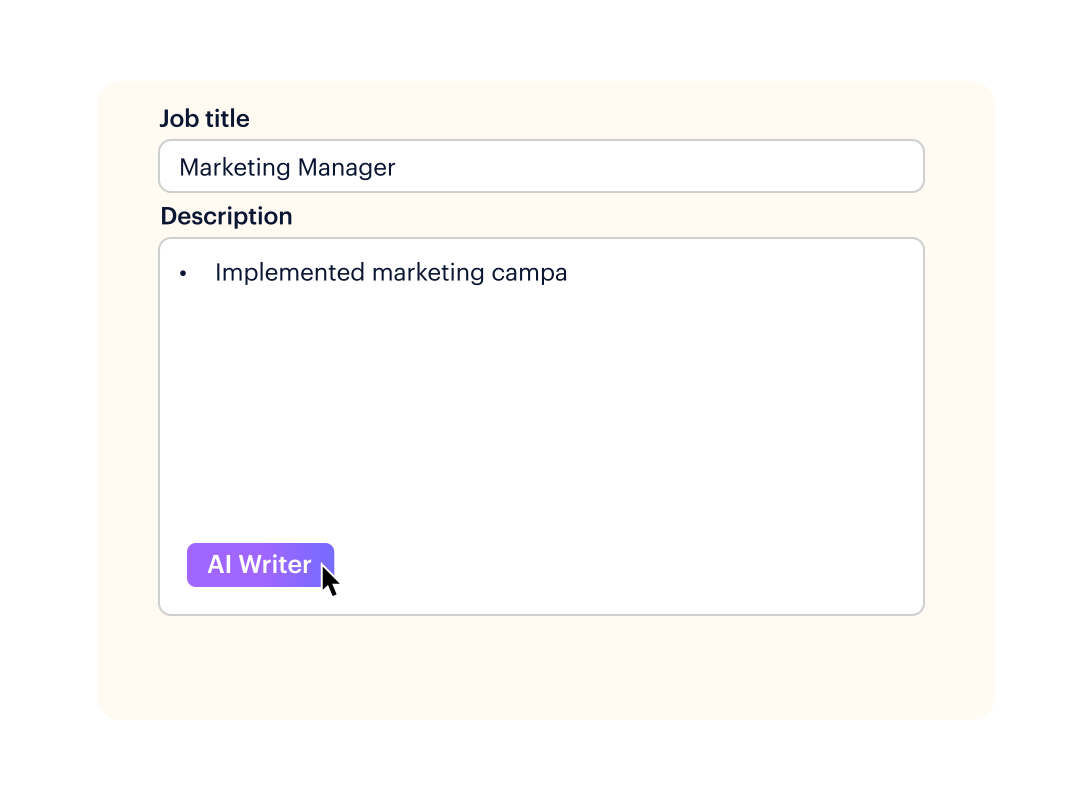



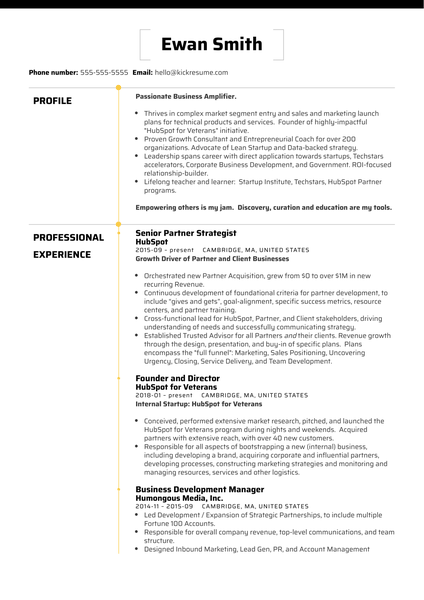






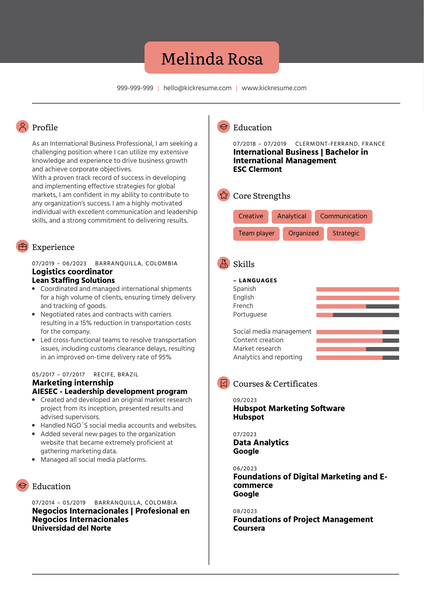

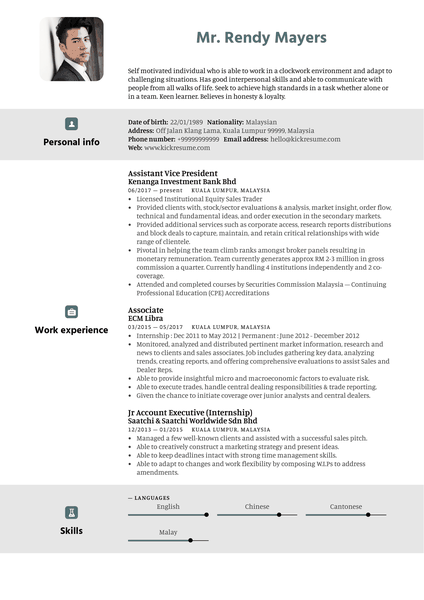
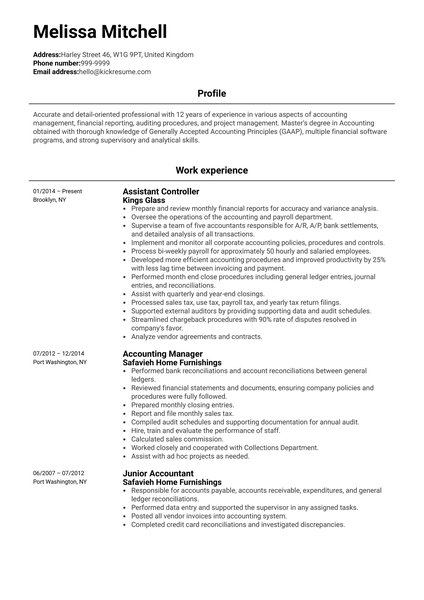
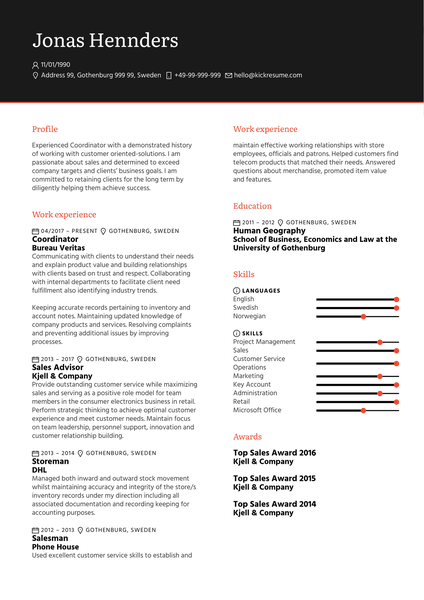

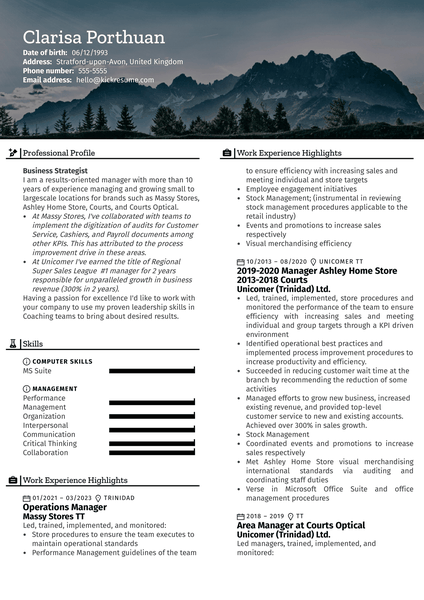



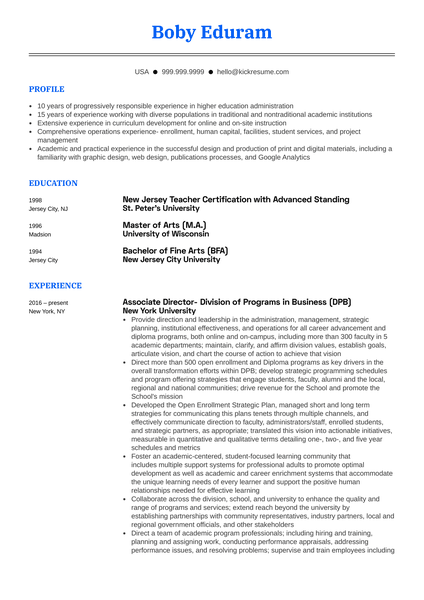

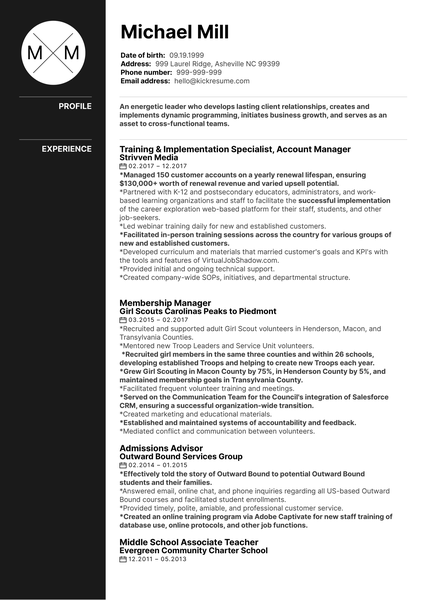

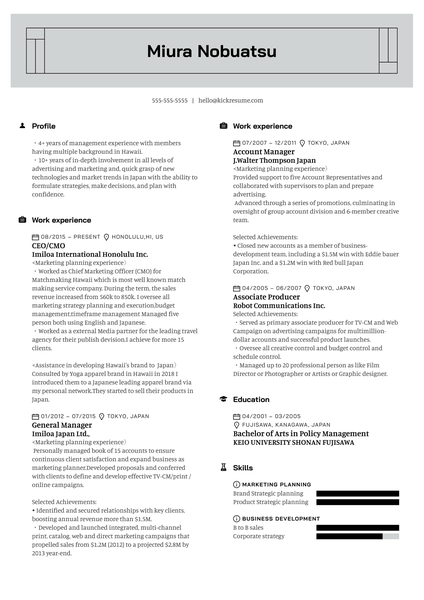

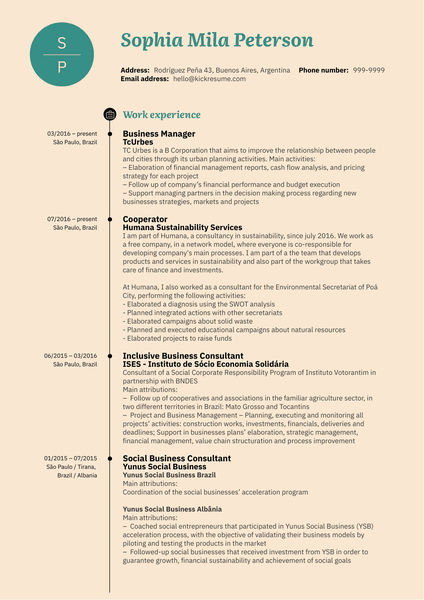
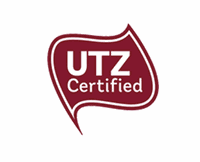
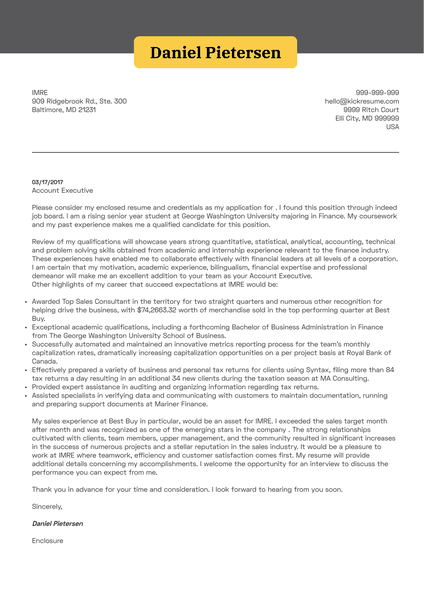
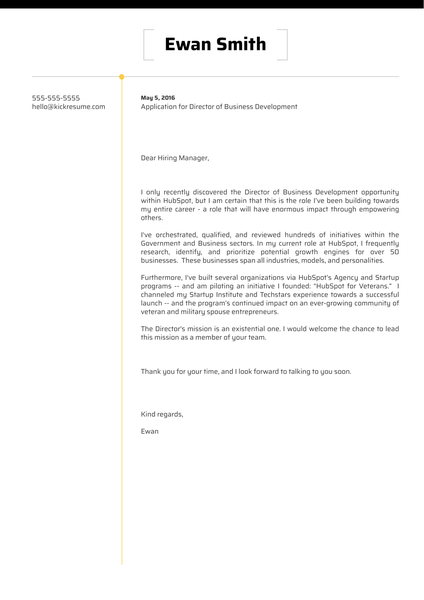

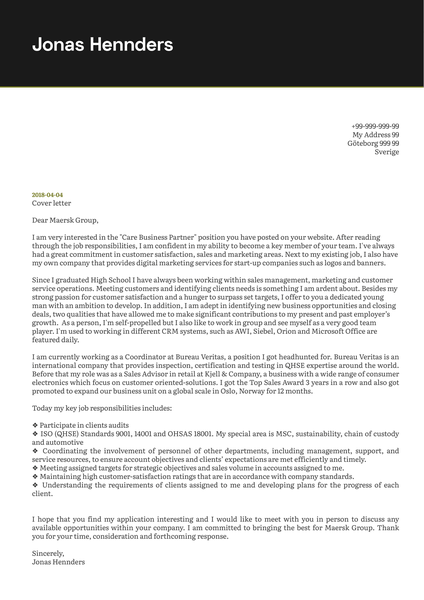
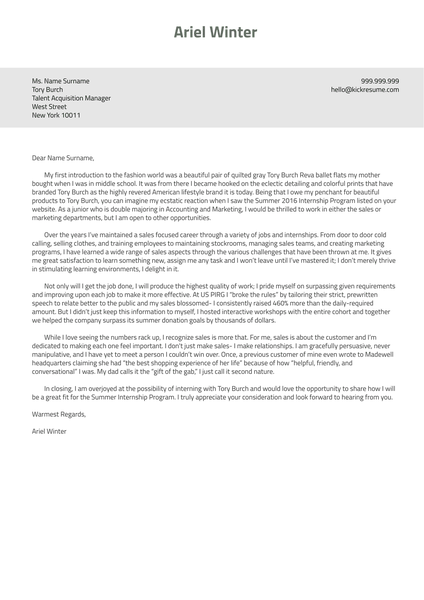
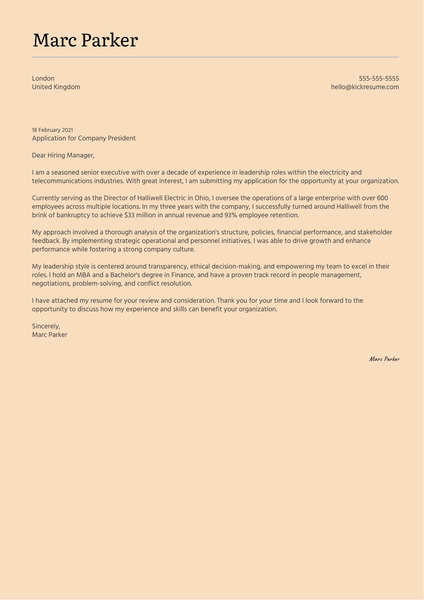
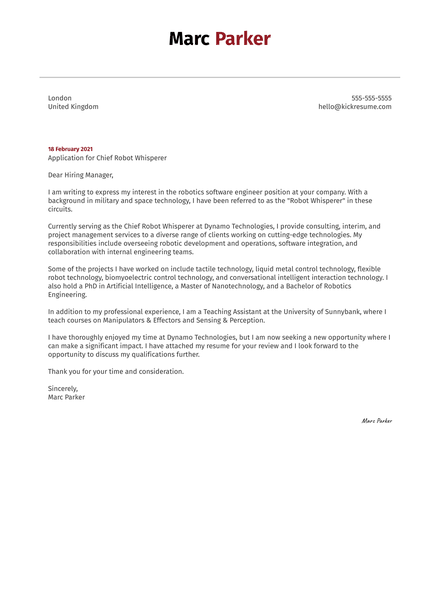
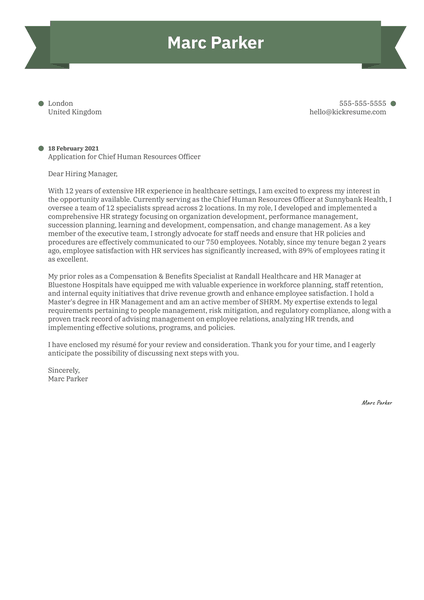
![How to Write a Professional Resume Summary? [+Examples]](https://d2xe0iugdha6pz.cloudfront.net/article-small-images/i-Profile.svg)
![How to Put Your Education on a Resume? [+Examples]](https://d2xe0iugdha6pz.cloudfront.net/article-small-images/i-Collage-Universities.svg)
![How to Describe Your Work Experience on a Resume? [+Examples]](https://d2xe0iugdha6pz.cloudfront.net/article-small-images/Experience.svg)


